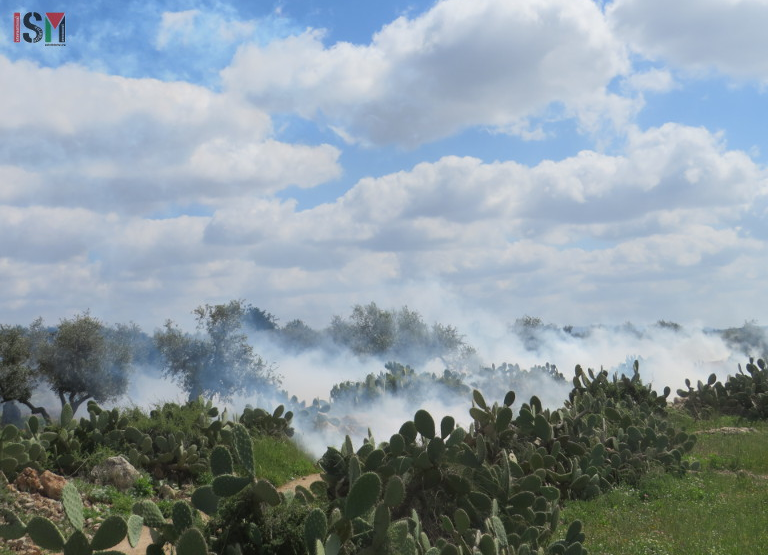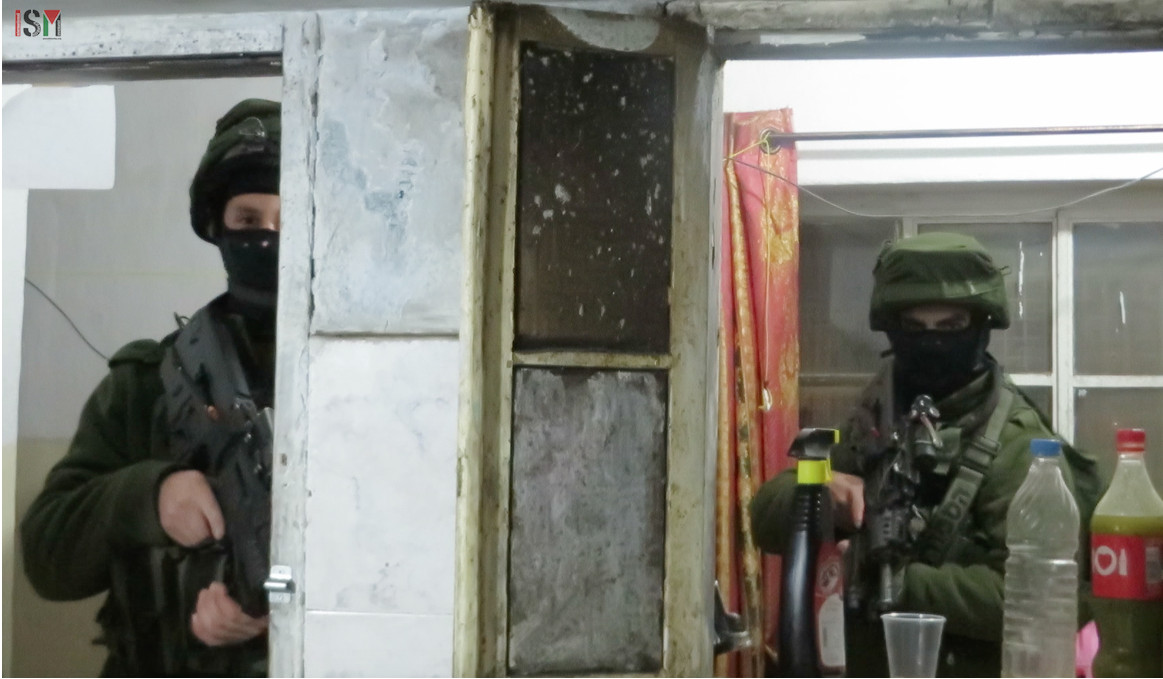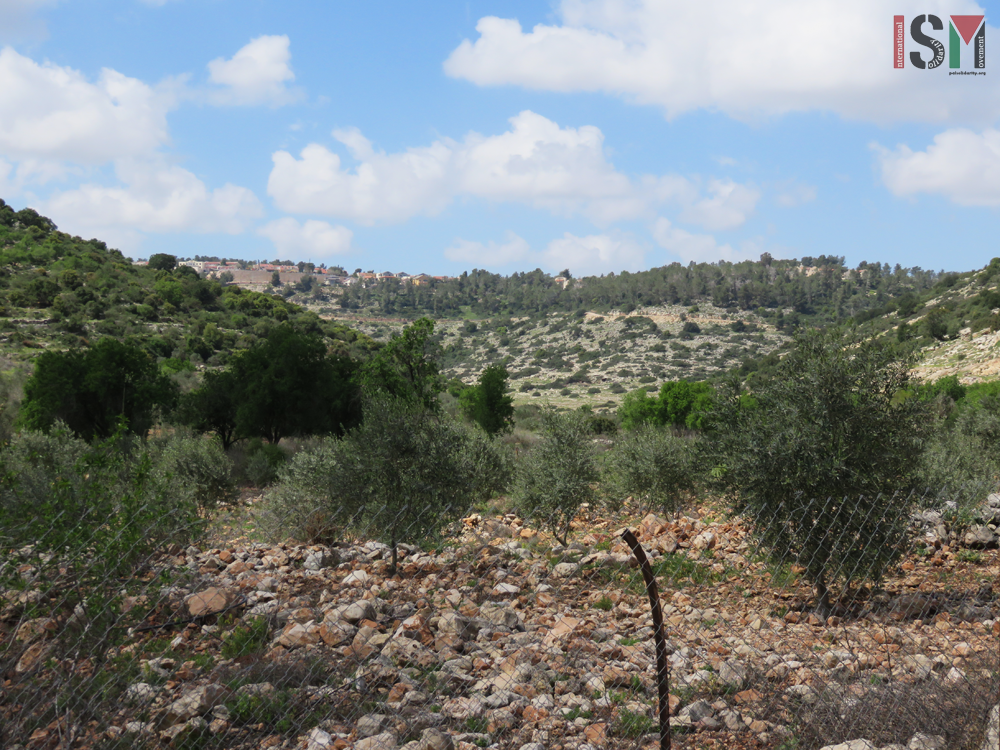Author: ISM Media
-
Ni’lin demonstrators met with senseless violence
23th March 2015 | International Solidarity Movement, Ramallah Team | Ni’lin, Occupied Palestine On the 20th of March, during Ni’lin’s weekly Friday demonstration, Israeli occupation forces attacked protestors with about 20 rounds of tear gas canisters shot with the ‘venom’ tear gas launcher mounted on a military jeep (which can launch up to thirty rounds of tear gas…
-
Continuing harassment of activists in Palestine
Occupied Al Khalil (Hebron), West Bank On an almost daily basis Israeli forces in Al Khalil harass and arrest local and international human rights activists as they try to do their tasks. The activists document violence towards Palestinians and act as a protective presence around children who are on their way to school. The volunteers’ feel…
-
Resistance to the destruction of olive trees in Wadi Qana
Tuesday, 17th March 2015, four farmers in the Salfit valley of Wadi Qana were issued with notices that they had 48 hours to remove their olives trees or they would be removed at their own cost. Failure to execute the orders are punishable by imprisonment, or fines up to the maximum penalty of the law.…



